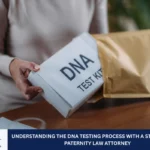The Legal Role of Paternity in Child Support
Establishing legal fatherhood through a paternity law attorney can significantly influence the outcome of child support cases, especially in Staten Island, NY. Paternity doesn’t just confirm a biological relationship—it creates a legal framework that affects financial obligations, custodial rights, and long-term responsibilities for both parents. Understanding what’s at stake and how the legal process works is essential for anyone involved in a dispute over child support or parental rights.
In New York State, child support cannot be enforced unless paternity is legally confirmed. This means the court must determine the child’s father’s identity before any support order can be established or enforced. For unmarried parents, this legal recognition of the father serves as the foundation for every subsequent decision involving custody, visitation, and financial responsibility. That’s why having a thorough understanding of paternity law and access to knowledgeable legal counsel can make all the difference.
What is a Paternity Law Attorney?
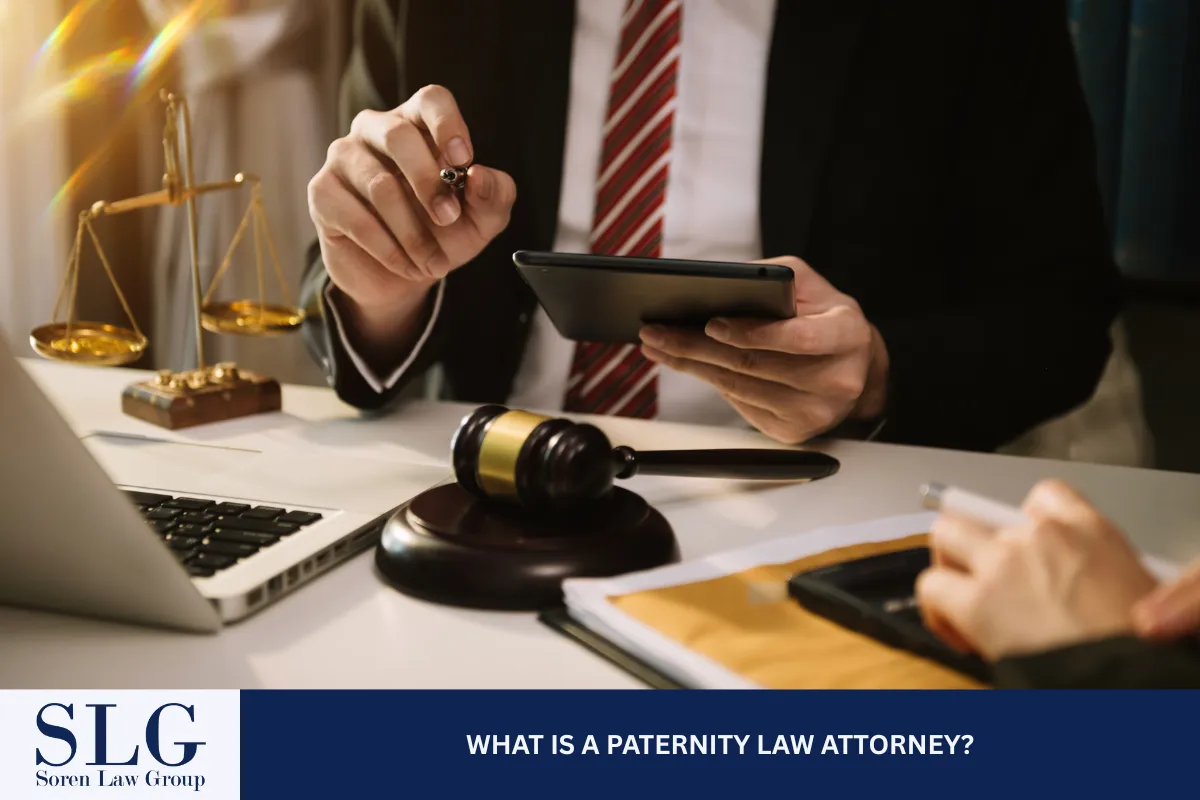
A paternity law attorney is a legal professional who specializes in cases involving the establishment or dispute of a child’s legal father. These attorneys specialize in family law issues, including child support, custody, visitation rights, and court-ordered DNA testing. Their job is to guide parents through the process of legally establishing paternity and ensure that their rights—and the child’s rights—are fully protected under New York law.
In Staten Island, this often involves navigating the Richmond County Family Court system, which handles a wide range of family matters. A paternity law attorney will assist with filing petitions, represent clients in hearings, interpret the law, and advise on the next steps following a legal decision. This includes enforcing child support orders, modifying existing agreements, or petitioning for visitation rights.
Unlike general practice lawyers, these attorneys possess focused expertise in New York State’s family law statutes, giving them insight into how local judges handle paternity-related matters and what supporting evidence or legal arguments are most effective.
Understanding Legal Paternity in New York State
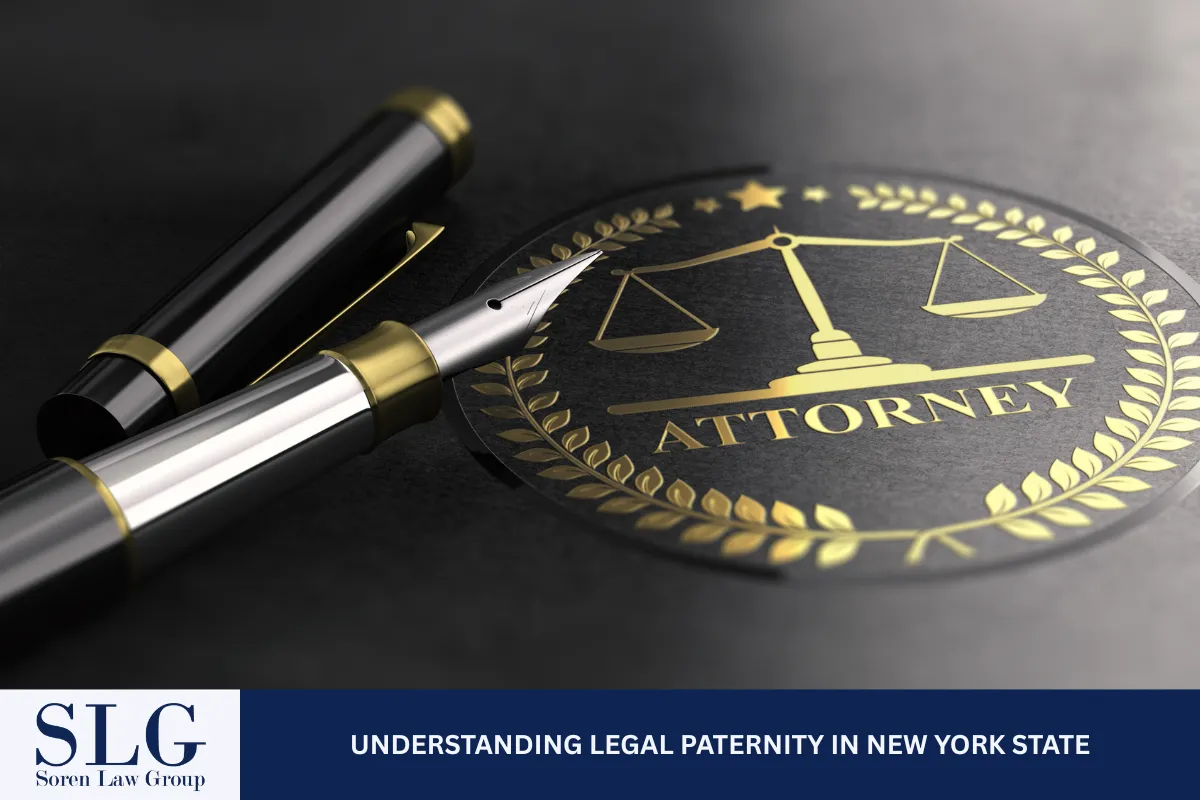
Legal paternity refers to the recognition of a man as the lawful father of a child. In New York, legal paternity can be established voluntarily or through a court order. For children born to married couples, paternity is automatically assigned to the husband. But for unmarried couples—which make up a significant portion of cases in Staten Island—this recognition is not automatic.
Two primary methods are used to establish paternity:
Voluntary Acknowledgment of Paternity (AOP)
The Voluntary Acknowledgment of Paternity form is signed by both parents, usually at the hospital after the child is born. Once signed and filed with the New York State Department of Health, it becomes a legally binding document. This form establishes the man as the child’s legal father, granting him certain rights and responsibilities.
However, signing this form without understanding its long-term implications can lead to issues later. A paternity law attorney can help parents evaluate whether signing the form is in their best interests or whether further legal action is needed to confirm or dispute paternity.
Court-Ordered DNA Testing
When paternity is in question, the court may order a DNA test to determine whether the man in question is the biological father. These tests are highly accurate and usually involve a simple cheek swab. If the test confirms a genetic match, the court will issue a legal ruling establishing paternity. This ruling then opens the door for child support, custody, and visitation proceedings.
Once the court establishes paternity, the father’s name may be added to the child’s birth certificate, and both parents become subject to the legal obligations and rights associated with parenthood.
Why Paternity Matters in Child Support Disputes
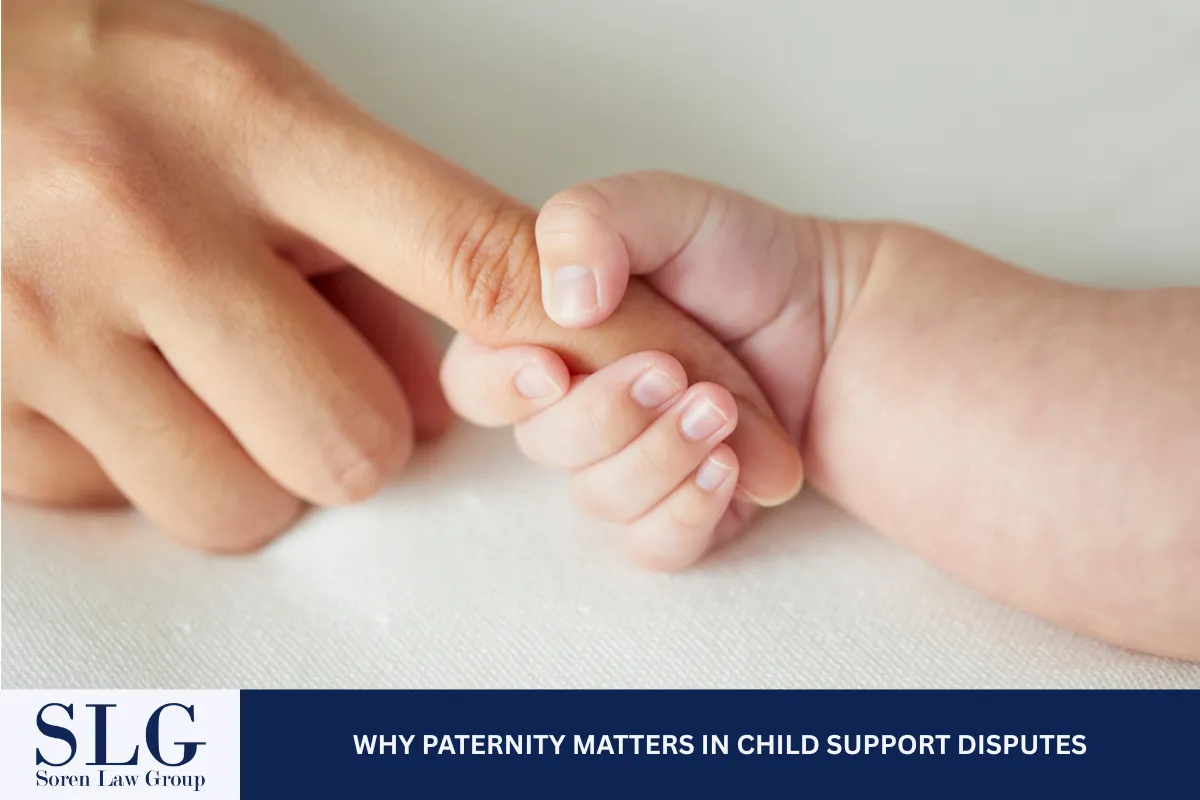
Establishing paternity has a direct and significant impact on child support in Staten Island. New York State law requires that child support obligations be tied to legal parentage. Until a father is legally recognized, no support order can be enforced. This means that without legal paternity, a mother cannot receive child support, and a father cannot claim custodial or visitation rights.
By legally defining who the child’s father is, the court ensures that the child receives the financial and emotional support needed for proper development. This legal framework also provides access to important benefits, including:
- Health insurance coverage through the father’s employer
- Inheritance rights
- Social Security or veterans’ benefits
- Access to family medical history
The process of establishing paternity is often the first and most essential step in a child support case, and failing to do so properly can result in delays, denials, or unfair outcomes. Hiring a paternity law attorney ensures that all legal requirements are met and that both parents understand their rights and obligations under New York law.
Filing a Paternity Petition in Staten Island Family Court
In situations where paternity is not voluntarily acknowledged, a parent or guardian can file a paternity petition with the Richmond County Family Court. This formal request asks the court to determine whether a specific individual is the child’s legal father. The petition can be filed by:
- The mother
- The man claiming to be the father
- The child’s legal guardian
- A representative from the New York State Department of Social Services
Once the petition is filed, the court will schedule a hearing. If either party disputes paternity, the judge may order DNA testing to establish paternity. A paternity law attorney can assist in preparing the necessary documents, appearing in court on behalf of the client, and interpreting the outcome of the case.
Court decisions on paternity are legally binding. Once the judge rules on the matter, both parents are required to comply with child support obligations, visitation arrangements, and other court orders.
The Impact of Paternity on Custody and Visitation Rights
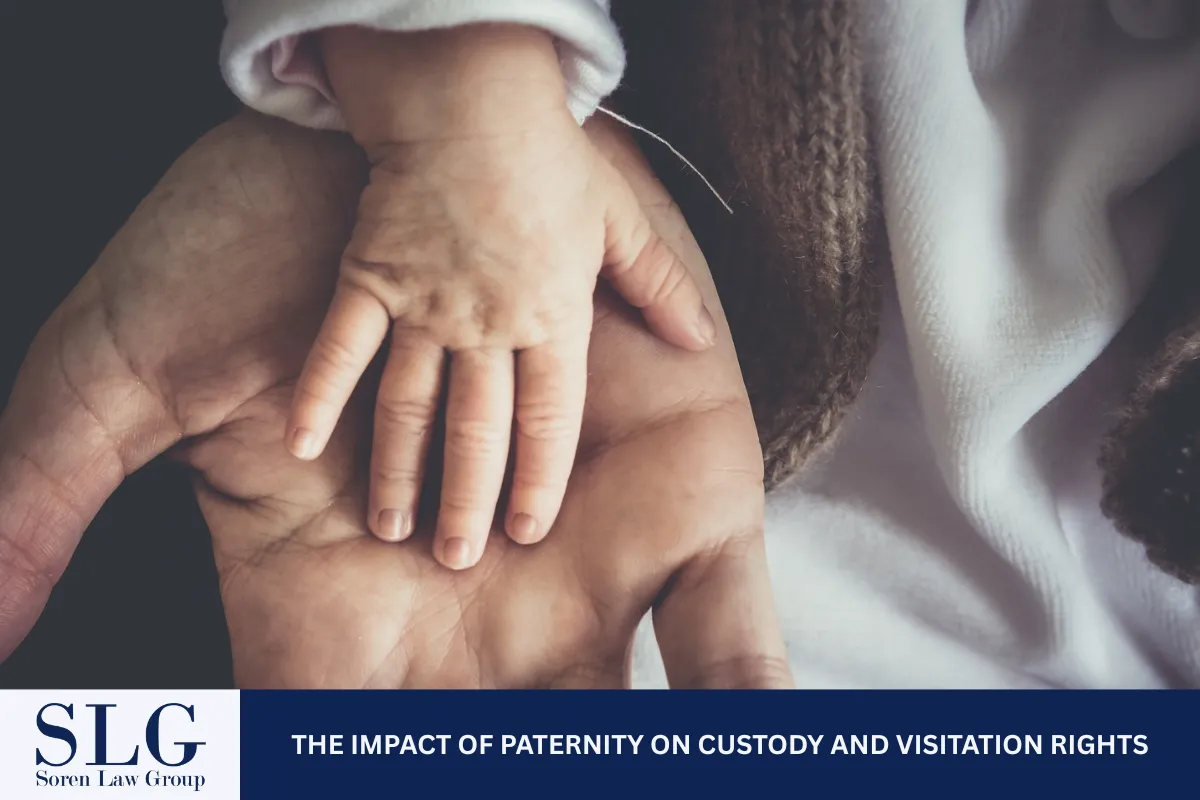
Establishing paternity is not just about finances—it’s also about legal rights. In New York, a legal father has the right to seek custody or visitation of the child. Without a court order establishing paternity, the alleged father has no legal standing to request these privileges.
Once paternity is confirmed, the father may petition the court for joint custody, primary custody, or a visitation schedule. The court will evaluate these requests based on the best interests of the child, considering factors such as:
- The stability of each parent’s home environment
- The physical and mental health of each parent
- The child’s emotional bond with each parent
- Work schedules and availability
- The willingness of each parent to cooperate with the other
A paternity law attorney can assist in building a case that demonstrates the father’s commitment to being an active, responsible part of the child’s life. This legal support is especially important in contested custody cases or situations involving parental conflict.
Modifying Child Support After Paternity is Established
Once legal paternity is established, the court may issue a child support order. This order is based on a percentage of the non-custodial parent’s income, as outlined by New York’s Child Support Standards Act (CSSA). However, child support amounts are not permanent and may be modified under certain circumstances.
Reasons for requesting a modification include:
- A significant change in income
- Loss of employment
- Medical emergencies or increased healthcare costs
- A change in the child’s living arrangements
Either parent can request a modification by filing a petition with the Family Court. A paternity law attorney can help present financial documents, explain the reasons for the requested change, and advocate for a fair and balanced decision by the court.
Resolving Paternity Conflicts Through Legal Support

Paternity disputes can be emotionally challenging and legally complex. Conflicting stories, mistrust between parents, and concern for the child’s well-being often make these cases difficult to handle without legal guidance. A paternity law attorney offers objective advice, emotional distance, and a deep understanding of New York’s legal process.
Whether you are trying to prove or disprove paternity, an attorney can help with:
- Filing or responding to a petition
- Requesting or objecting to DNA testing
- Negotiating child support agreements
- Petitioning for custody or visitation
- Protecting your legal rights in court
In Staten Island, where family court procedures follow strict guidelines, having a knowledgeable attorney on your side can mean the difference between a favorable outcome and a drawn-out legal battle.
Choosing the Right Time to Seek Legal Help
Many people wait too long before consulting a lawyer, believing they can manage the situation on their own. But legal missteps early in the process can have long-lasting consequences. It’s wise to consult a paternity law attorney in Staten Island when:
- You are being asked to sign a voluntary acknowledgment form, and you have concerns
- You’re unsure if you’re the biological father, but you are facing a child support claim
- The mother of the child refuses to allow visitation or co-parenting
- You believe you have been wrongly named as the father
- You want to modify a court order related to support or custody
Acting early and with proper legal support can help you avoid unnecessary stress, court complications, and emotional conflict.
Making the Right Legal Choice for Your Family’s Future
Understanding when to hire a paternity law attorney is one of the most critical decisions you can make during a child support or custody case in Staten Island, NY. Legal paternity lays the groundwork for every financial, custodial, and parental right you may have—or be held accountable for. Delaying or avoiding legal action can complicate the process and increase the emotional toll on everyone involved, especially the child.
Having professional guidance from someone familiar with the court system and understanding your unique situation makes a significant difference. A qualified paternity law attorney can help protect your rights, clarify your obligations, and work toward an outcome that supports the long-term well-being of your child and your family as a whole.
Staten Island Paternity Law Attorney – Soren Law Group
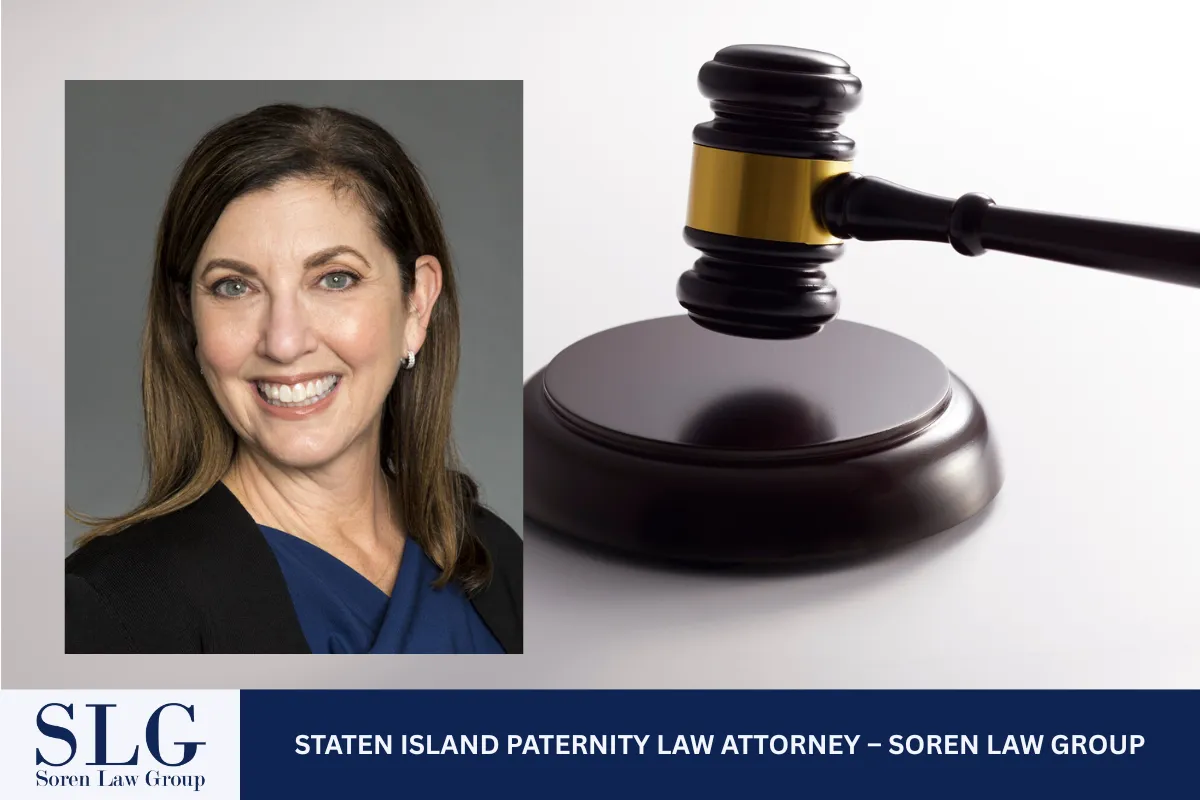
Looking for reliable help with a paternity or child support case in Staten Island? Soren Law Group is here to guide you through every step. We specialize in family law matters, including paternity disputes, child support, custody, and parenting rights. Our goal is to make the legal process easier to understand and less stressful so that you can move forward with clarity and confidence.
Our attorneys take the time to listen and understand your unique situation. With deep knowledge of New York family law and years of experience in Staten Island courts, we’re ready to fight for the outcome you deserve. Call us today at (718) 815-4500 to get the support and guidance you need!
Frequently Asked Questions About Paternity and Child Support in Staten Island
1. What happens if a man is wrongly identified as the father in a child support case?
In cases of paternity fraud, where a man is falsely identified as a child’s father, he may still be held legally responsible unless action is taken quickly. If a paternity test wasn’t completed at the start of the case, the alleged father can request a court-ordered paternity test to challenge legal parentage. However, once a man signs an official court paper like a Voluntary Acknowledgment of Paternity and doesn’t contest it within a specific time frame, reversing that legal status becomes difficult—even if DNA later proves otherwise.
New York courts typically require proof of fraud, duress, or material mistake to set aside a prior acknowledgment. A skilled paternity law attorney or paternity attorney can file a request for an order to reopen the case, especially if there’s a pending custody dispute or child support arrears involved. Seeking legal representation early is critical in avoiding long-term legal and financial consequences.
2. How does the court determine the amount of child support in Staten Island?
New York follows guidelines set by the state to calculate child support payments. These guidelines use a percentage of the non-custodial parent’s income—17% for one child, 25% for two, and so on. However, courts may consider additional expenses, such as education costs, healthcare expenses, and extracurricular activities of the minor children. The court will also review each parent’s income and expense declaration to determine what’s fair and reasonable.
In cases where a parent is unemployed or hiding income, the court may impute income based on earning potential. A family law attorney can help ensure all relevant financial documentation is submitted and reviewed properly. If a parent falls behind on payments, they could face probation supervision or enforcement actions.
During a court hearing, a judge may adjust the support amount based on evidence and testimony, often during a fact-finding hearing. Accurate financial disclosure is essential for a fair support order.
3. Can a father gain custody or visitation rights after establishing paternity?
Yes, once a paternity lawyer or paternity law attorney helps establish legal fatherhood, the father gains the right to request child custody or visitation. Being the biological father alone doesn’t grant legal rights—legal parentage must be confirmed through the court. After that, the father can file a request for an order in family court, asking for custody or a parenting schedule.
During a custody dispute, the court considers several factors to determine what is in the child’s best interests. These include each parent’s relationship with the child, home environment, work schedule, and ability to meet the child’s emotional and physical needs. In some cases, the court may even review past family offenses or criminal records.
A family law attorney will help present evidence supporting the father’s involvement and fitness to parent. Visitation rights can also be modified over time, especially if the child’s needs or the parents’ circumstances change.
4. What are the legal options if the other parent refuses a paternity test?
When one parent refuses to take a paternity test, the court can intervene. In New York, either parent may petition the court to establish paternity, and the judge can order a court-ordered paternity test. This typically happens during a family court fact-finding hearing, where both sides present evidence. If the alleged father doesn’t comply, the court can enter a default judgment, legally declaring him the father—even without DNA evidence.
This process starts with filing a family offense petition or paternity petition, followed by a court hearing. The judge may consider factors like prior acknowledgment of paternity or past support payments. A paternity attorney can help file the correct documents, ensure the court’s order is enforced, and protect your rights throughout the process.
If the child is under probation supervision or involved in juvenile delinquent proceedings, establishing paternity may be necessary for future decisions on custody or parental responsibilities.
5. Can child support include more than just basic needs?
Yes, child support in Staten Island can include more than food, shelter, and clothing. While the child support guidelines establish a basic formula, judges may also consider additional expenses, such as education, daycare, health insurance, and even costs for extracurricular activities like sports, tutoring, or music classes. These are often referred to as “add-on expenses” and can be shared between parents in proportion to their respective incomes.
During the court hearing, both parents must submit an income and expense declaration, which the judge uses to determine the ability to pay. A family law attorney or paternity law attorney can help identify all eligible expenses and ensure they’re addressed in the support order.
Additional costs may also arise in complex cases, such as when a child has special needs or attends private school. Legal advice is crucial for ensuring that the final agreement or order accurately reflects the child’s full range of needs and protects the financial interests of both parents.
Read more: Understanding the DNA Testing Process with a Staten Island Paternity Law Attorney











